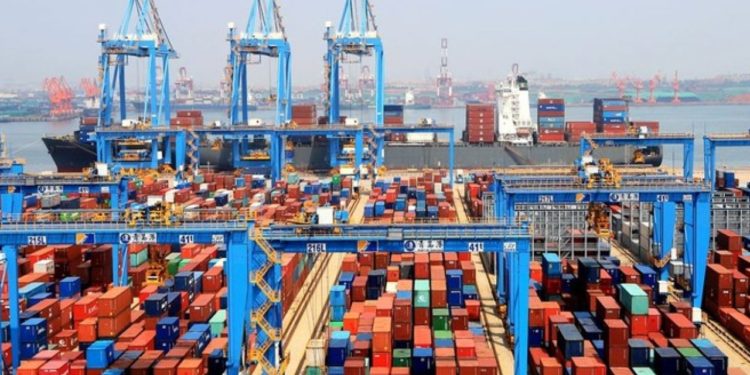Notable shifts in Kenya’s economic landscape have come to light in the latest comprehensive trade data released by the Kenya National Bureau of Statistics (KNBS).
The import bill for the year experienced a modest increase of four percent, reaching KES 2.59 trillion. Notably, a significant portion of this expenditure can be attributed to four key countries: China, the United Arab Emirates (UAE), India, and Saudi Arabia. Collectively, these nations accounted for 50 percent of Kenya’s total import expenditure.
Analysis of the import structure, as unveiled by KNBS, underscores the dominance of non-food industrial supplies, fuel, and lubricants in Kenya’s import bill. These commodities, primarily sourced from the Middle East and other Asian countries, constituted 60 percent of the total import bill in the past year.
China, a major supplier of electronics and household commodities to Kenya, experienced a modest one percent growth in exports, reaching a record high of KES 459 billion. Meanwhile, the UAE solidified its position as the second-largest exporter to Kenya, with goods valued at KES 413.2 billion, largely due to its significant fuel exports.
In contrast, Kenya’s export earnings demonstrated remarkable growth, surpassing the KES 1 trillion mark for the first time. This 15 percent increase in receipts was primarily driven by a notable 19 percent surge in foodstuff exports, totaling KES 398.7 billion.
This positive performance in export earnings played a pivotal role in narrowing the trade deficit to KES 1.59 trillion, down from KES 1.62 trillion in the previous year.
Uganda emerged as a crucial trading partner, with export receipts soaring by 41 percent to a record high of KES 113.8 billion, constituting 11 percent of Kenya’s total export earnings.
This surge was primarily attributed to increased sales of agricultural produce and fuel products to the landlocked country. However, the substantial rise in Uganda’s share of Kenya’s export earnings raises concerns about concentration risk, particularly in the event of a fallout or significant policy shift.
Notably, exports to the United States experienced an unprecedented and significant decline of 22 percent to KES 59.4 billion.
This decline relegated the U.S. from the second-largest market to the fourth position, trailing behind Uganda, Pakistan, and the Netherlands. Despite an increase in imports from the U.S., totaling KES 113 billion and marking a 22 percent increase from the previous year, the drop in American imports underscores evolving dynamics in Kenya’s global trade partnerships.
As Kenya navigates these shifting trade patterns, careful consideration of its dependency on key trading partners and the associated risks of concentration becomes imperative for sustaining a robust and resilient economy.


















